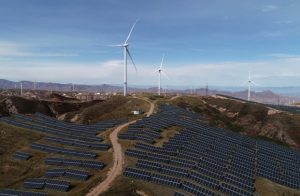Post-Covid recovery stimulus need to target green issues more, in what will be a once-in-a-generation opportunity to clean up the planet, say experts.
Of a total of $14.9 trillion in stimulus spending announced globally since the pandemic began, so far $1.8 trillion has been set aside to deal with the impact of polluting sectors such as energy, transport, industry, farming and waste, a report from the Vivid Economics and Finance for Biodiversity think tank found.
But while most of the post-pandemic stimulus packages are failing to support climate change action or the loss of biodiversity, the amount of green spending is slowly tracking upwards, according to the study.
Read more: From Tinder to Chopra, Bumble’s boss causes Wall Street buzz
Advocates of rapid action to slash planet-warming emissions see the packages as a once-in-a-lifetime chance to invest at the scale needed to a spark a shift to a low-carbon economy.
Nevertheless, moves by countries including the United States, Canada, China, Japan and others to support sectors such as renewable energy, electric vehicles or afforestation suggest recoveries are becoming more green-tinted, said the study.
“We are seeing momentum building towards a greener stimulus package but there’s still a long way to go,” Jeffrey Beyer, an economist at Vivid Economics and co-author of the report, known as the Greenness of Stimulus Index, said.
IMPROVED RANKING
Although US spending has so far mostly propped up business as usual, President Joe Biden’s moves to act on climate change and environmental protections since taking office in January have improved the country’s ranking.
Canada’s ranking also gained after the government announced a range of green investments in sectors including energy efficiency and ecosystem restoration.
Japan was ranked the top green stimulus country in Asia after adopting measures designed to boost cleaner energy and transport, although the gains were outweighed by the country’s continued backing for fossil fuels.
China’s score, also weighed down by its support for heavy industry, improved due to plans to expand wind and solar.
- Reporting by Reuters
























